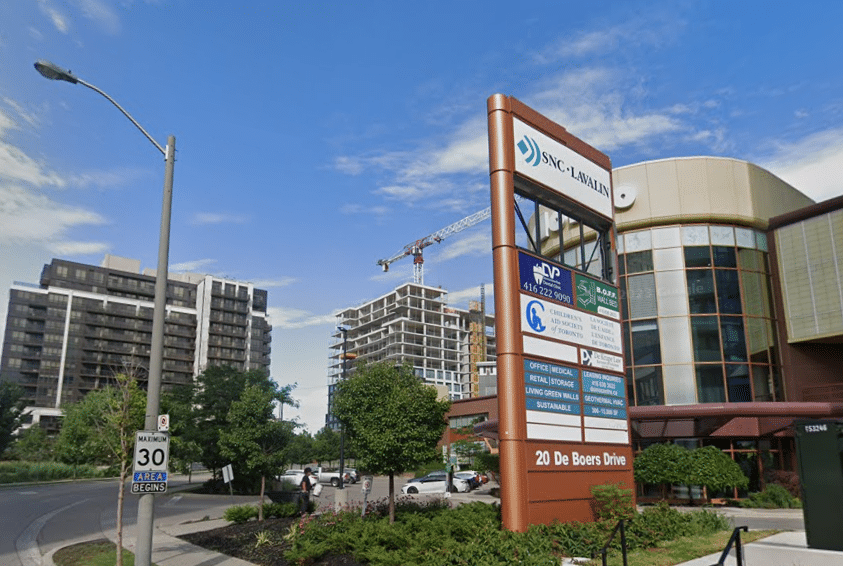Do You Need a Lawyer When Buying a Condominium in Toronto?

Summary:
In Ontario, condominiums are legally recognized under the Condominium Act, 1998, and come in several forms:
- Standard Condominiums
- Phased Condominiums
- Vacant Land Condominiums
- Common Elements Condominiums
They can also be divided into freehold and leasehold condominiums, depending on the ownership rights to the land on which the condo is situated. Each type carries unique rights and obligations, making it essential to consult a condominium lawyer in Toronto. De Krupe Law’s real estate lawyers can review status certificates and agreements, guiding a safe condominium buying process.
Need Legal Help?
Our experienced real estate lawyers in Toronto can guide you through contracts, closing, and more.
If you need a quick answer, yes, you definitely need a condominium lawyer to purchase a condo in Toronto. Why? Lawyers usually know the ins and outs of any real estate closing, saving you an enormous amount of time and money. However, the speed with which they close deals stems not only from theory, but also from experience and legal practice. While you can’t gain the last two without proper education, you can read this article further to learn condominium buying basics.
What Is a Condominium?
In simple terms, a condominium is just what people call a flat or apartment. However, legally, all these terms differ in ownership rights, responsibilities, and documents required. So, as a real estate lawyer in Toronto explains, condominium ownership is a form of real estate ownership where an individual owns a specific unit within a larger property, while also sharing common areas with other unit owners.
Despite detached, single-family homes (that are top sellers for many consecutive months, according to Toronto Real Estate Market Statistics), condominiums combine private ownership with shared responsibility. What does this mean to you? This fact creates both opportunities and obligations:
- Individual ownership supposes full ownership of your private living space (unit)
- Shared responsibility (which can also be sometimes titled as shared ownership) is a proportional share in the common areas, amenities, and land where the building sits
A condominium corporation in Canada (or Condominium Authority of Ontario) governs every condominium type. They manage the property, oversee finances, and enforce rules from pet policies to renovation timelines. So, with great power comes great responsibility, which includes, but is not limited to:
- Maintenance of common areas
- Budgeting and collecting monthly fees
- Enforcing bylaws and regulations
- Overseeing community improvements
- Helping resolve potential disputes
- Reviewing the status certificate
There are also organizations, such as the Community Associations Institute (CAI) and the Condominium Institute of Canada (CCI), that offer further education and support to those who already own a condo. Meanwhile, during the process of buying a condo, a condominium lawyer will help you properly budget maintenance fees and explain your rights and obligations as a future condo owner in plain language.
Main Condominium Types in Ontario
Before making a significant decision, such as buying a condo, you definitely need to know exactly what you are buying. There are no simple ways to do so, except for learning about the main condominium and ownership types. Each type of ownership carries unique rights, responsibilities, and benefits.
Moreover, each type belongs to either freehold or leasehold property titles. In a freehold condominium unit, owners own a “fee-simple” interest in the unit (and share of common elements), including the land. In simpler words, you’ll have permanent ownership of both the unit and the land it occupies.
On the other hand, there are leasehold condos, where you lease the land beneath the apartment, not own it. Typically, lease terms range from 40 to 99 years. It is definitely more affordable to buy a leasehold condo. However, you may face issues with lease expiry. Here’s the table with a detailed explanation of each condo type, as outlined in the Ontario Condominium Act (1998).
| Type of condo corporation | Definition | Example | Pros and Cons |
Freehold Condominium Corporations |
|||
Standard |
Defined as a simple formula: Units + common elements. Meaning that you fully own your individual unit and common elements (areas such as a foyer, exterior walls, and amenities). The most common type in Ontario. Ownership can be sold, mortgaged, or transferred with more freedom. All condos registered prior to May 5, 2001, under the old law are “standard”. Can also be phased (see below). | High-rise buildings, multi-unit buildings, townhouses.
|
Shared amenities and responsibilities. You’ll gain complete control over your property and substantial resale value. However, there is also a higher responsibility for maintenance and shared decision-making in condo associations. |
Phased |
Phased condos are standard condominium corporations that are developed in phases.
Additional units or common elements are added over time, via amendments, with a 10-year limit for registering phases after the initial registration. Owners from early phases become part of the same condominium corporation as later arrivals. |
Large condo projects are developed in phases.
|
You get an exclusive opportunity to buy early at lower prices. However, you also need to consider the absolute lack of amenities at early construction stages and the construction noise that may disrupt your daily quiet life. Moreover, buyer disclosure obligations are stricter in phased condos, especially in early phases. |
Vacant Land |
You’ll be granted ownership over a plot of land rather than a built structure. It means that units are parcels of land, often sold before structures are built. You may then build a home on your “vacant land” lot while still sharing in the community’s common areas (roads, parking lots, recreational facilities). This type is more common in subdivisions, detached or semi-detached home developments. Not as common in high-rise condo urban towers. | Detached homes or townhomes built after registration.
|
Just imagine, you can build a custom home with the privilege of visiting all common areas that may include pools, parks, and beautiful landscaping areas. Yet, there’s a dark side as well. You need to build your home first, and all construction responsibilities are on you. Additionally, there may be design restrictions, such as the units being on one level (i.e., no units above or below each other). This makes financing challenging and implies a lot of special legal considerations. |
Common Elements |
In this ownership type, you do not own the units themselves but purchase a parcel of tied land (POTL) and share ownership of the common elements (private roads, shared recreational grounds, or shared infrastructure). At the same time, your individual home is separately titled. | Often freehold houses or townhouses | This is the most balanced type of condo corporation with which you can benefit from shared amenities like security gates or clubhouses. However, you’ll have limited control over shared property, despite the fact that you’ll still be obliged to pay your monthly condo fees for it |
Amalgamated |
This type of condominium ownership is more relevant for large or older condo corporations, rather than for average condo buyers. Several condominium corporations may amalgamate into a single one. The Act provides for how declarations, by-laws, etc., are merged or replaced. | Two or more condominium corporations | It will become easier to manage one condominium corporation instead of multiple societies. However, the amalgamation transformation requires in-depth knowledge of real estate law to be accomplished. |
Leasehold Condo Corporation |
|||
Leasehold |
In a leasehold condominium, the association or unit owners lease the land beneath the condo from a landlord, rather than owning it. Typically, lease terms range from 40 to 99 years. | Any unit type, but land leased.
|
Leasehold condominiums offer all the benefits of freehold condos at lower purchase prices. However, your condo’s value declines as the lease term shortens. Moreover, renewing leases can be costly and uncertain, and financing is more complicated. |
You can download the PDF version of this table for free here.
Types of Property Ownership
Now that you know each and every condominium type that exists in Ontario, you are ready to learn more about legal ownership types. We previously mentioned individual ownership and shared responsibility. However, there’s more to it. Main types of ownership in Canada include:
- Sole Ownership (or Registered Ownership) – only one person is the legally registered owner of the property.
- Co-Ownership (Cooperative or Joint Corporate Ownership) – several persons legally own equal parts of the property. It is more common for residential properties.
- In Trust – The registered owner is not the “actual” owner of the property. One party holds legal title to the home and maintains it, for the benefit of another party (the “actual” owner).
To define and transfer the title and ownership, you need a condominium lawyer. Legal procedures can be different depending on the condominium and ownership types, whether it’s a new condo, resale, or pre-construction, or you’re going to lease a unit.
Why Should I Hire My Own Condo Lawyer for a Real Estate Purchase or Closing?
We already mentioned several benefits across the article, but if you’re still not convinced enough, this paragraph is for you. While it may be cheaper to use the seller’s agent in a real estate purchase, in some cases, the purchaser may not have the best lawyer for their rights and needs. Our real estate and condominium lawyers will help you fully control the buying process, with your best interests in mind.
What else makes hiring condominium lawyers in Toronto worth it? They:
- Know local real estate market insights
- Ensure compliance with Ontario’s Condominium Act
- Provide you with legal guidance during purchase, sale, or dispute resolution
- Review contracts and agreements
- Handle closings and other more complex condominium transactions
If a dispute arises at any stage of the deal, our expert lawyers will help you instantly resolve it, saving you nerves, time, and money. Additionally, we can recommend alternative properties or real estate agents that may better suit your needs.
Real Estate Lawyer VS Condominium Lawyer
At this point, it is okay to wonder what the difference is between a real estate lawyer and a condominium lawyer, and which one do you need to buy a condo in Toronto? In general, there’s almost no difference between them, except for the fact that condominium lawyers are supposed to have a deeper knowledge of condominium transactions and represent governing bodies rather than individual condo buyers. Here’s the comparison of these two legal fields:
- A real estate lawyer handles a wide range of property transactions, such as the purchase, sale, and lease of all types of real estate. They represent individual buyers and sellers. Main tasks are to:
- Draft and review contracts, including purchase agreements and deeds.
- Conduct title searches to ensure clear ownership.
- Prepare closing documents and streamline the transfer of ownership.
- Resolve boundary disputes or other roadblocks during a transaction.
- Handle a specific transaction or several transactions.
- Meanwhile, a condominium lawyer specializes in the legal issues unique to co-owned properties, such as condo bylaws, shared maintenance, and disputes between owners and the condominium corporation. They represent condominium corporations and co-owners in their collective and individual capacities. Main tasks are to:
- Draft and interpret condo bylaws, rules, and policies.
- Advise the condo corporation on day-to-day administrative matters.
- Handle disputes over everyday expenses, unpaid charges, and maintenance of shared areas.
- Address construction defects, design issues, and other claims against the corporation.
- Assist with co-owner meetings, budgets, and resolutions.
- Provide ongoing legal administration and address complex interpersonal issues within a condominium community.
Generally, a real estate lawyer possesses a broader knowledge of all property law, whereas a condo lawyer has a deeper, specialized understanding of condo law. Regardless of your legal issue, you can contact our law firm today to receive a clear and free consultation.
Conclusion
Condominium ownership offers a wide range of opportunities, but also comes with an exhaustive list of responsibilities. You definitely already know a lot about the community where you want to buy a condo. And now, after reading this article, you also know more about legal considerations.
With De Krupe Law condominium lawyers, you can enjoy all the condo benefits, from lower maintenance to strong investment potential and beyond, without thinking about legal complexities at all. Contact De Krupe Law’s real estate lawyers for assistance with your condominium purchase or ownership needs.
Condominium Lawyers FAQ
-
Can I rent out my condo unit in Toronto?
The short answer is yes. However, you must check your condominium corporation's rules for any restrictions, such as minimum rental periods, and adhere to the City of Toronto's regulations on short-term rentals. There are also a couple of documents, such as a tenancy agreement, that you need to gather alone or with your tenant.
-
What happens if I don’t pay condo fees?
Nothing good, to be honest. In the short term, you’ll face mounting debt and interest charges. In the long term, you can lose the amenities and get a lien against your property. It means that your condo corporation can forcefully sell your unit to pay off the debt.
-
How long does a condo closing take?
The timeline depends on various factors (like mortgage approval and paperwork processing), yet, in general, it can take anywhere between 30 and 90 days (1-3 months) to close the deal completely.
-
What are the differences between buying a condominium and buying a house?
Although it may seem there are not many differences between buying a condominium and a house, they exist and can be divided into three main categories:
- Ownership
- Defects and repairs
- Modification of the property
Before making any purchase, especially one involving an HOA (homeowner’s association or condominium corporation), we recommend hiring a lawyer to review the documents as well, prior to purchasing, as they may be aware of issues that a non-lawyer would not recognize.



